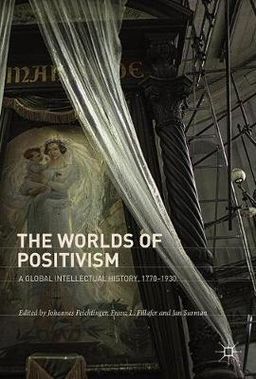About
Graz Üniversitesi'nde tarih, Almanca ve medya çalışmaları okudu. 1999 Doktora 2011 Viyana Üniversitesi'nde modern tarihte habilitasyon. Wiener Wittgenstein Edition (Cambridge, GB) çalışanı ve 1945–1955 İngiliz işgali altındaki Die Steiermark ve Avusturya Mülteci Akademisyenleri altında FWF projeleri Die Steiermark ve 1900 civarında SFB Moderne - Viyana ve Orta Avrupa'da . 1999/2000, Little Rock'taki Arkansas Üniversitesi'nde (UALR) misafir profesör, 2016/2017 Viyana Üniversitesi'nde. 2001-2004 yılları arasında Graz Üniversitesi'nde öğretim görevlisi, 2010'dan beri Viyana Üniversitesi'nde. 2004'ten beri Avusturya Bilimler Akademisi'nde (ÖAW) araştırma görevlisi.
Title:
Yazar ve Tarih Profesörü
Birth:
Hartberg, Steiermark, 1967
Readers
1 readers read.
1 readers will read.
Quotes
The Catholic philosopher Franz Brentano assumed his chair at the University of Vienna in 1874. Brentano claimed that “the true method of philosophy was no other than the method of the natural sciences.”51 In his inaugural lecture in Vienna Brentano declared that the guiding beacon for philosophy was “experience.”52 Brentano professed to “weed out” the “superstition” of “pompous” and “magnifed systems,” thereby striving to dismantle Herbartianism.53 Unbiased introspection should enable man to draw a precise boundary between psychical “acts” and physical “phenomena.” While Brentano’s empiricist credentials are substantiated by his plan to establish a psycho- logical laboratory, for Gomperz and his legatees Brentano’s philosophy was marred by the very doctrines of the “spirituality of the soul” that Herbart and his students also promoted.54
51. Franz Brentano (1929 [1893]) Über die Zukunft der Philosophie, ed. by Oskar Kraus (Leipzig: Meiner), 137.
52. Franz Brentano (1999) “Über die Gründe der Entmutigung auf philosophischem Gebiete. Ein Vortrag, gehalten beim Antritte der philosophischen Professur an der k.k. Hochschule zu Wien am 22. April 1874,” in Kurt Rudolf Fischer (ed.)Österreichische Philosophie von Brentano bis Wittgenstein. Ein Lesebuch (Vienna: WUV), 3–14, here 3.
53. Franz Brentano (1895) Meine letzten Wünsche für Oesterreich (Stuttgart:Cotta), 10, 31.
As Gottfried Gabriel describes, Carnap adopted concepts and strategies from Dilthey, redeploying them from his bracketing of metaphysics in the 1920s to his more radical confrontation with metaphysics and Heidegger’s ontology in the early 1930s.
Although they were avid followers of the positivist doctrine as part of modern European scientific thought, the Young Turks always felt a deep attachment to the moral values of Islam and Ottoman culture. Well aware of this strong connection, Juan Enrique Lagarrique, a positivist activist, sent a critical letter to Ahmed Rıza from Santiago, Chile, which was published in 1901. In his letter, Lagarrique stated that he had examined the copy of the journal Mechveret sent to him by Rıza, and while he paid homage to the sincerity of Rıza’s efforts for l’avance of Turkey, Lagarrique considered a number of his views on religion as clear deviations from the genuine spirit of the Religion of Humanity and the ideas of Comte.
What all the currents grouped under the denominator “positivism” had in common were three basic attitudes: they shared an anti-speculative, and anti-metaphysical outlook, and their relationship to rational- ism was ambivalent. Many of those who subscribed to a positivist agenda both in the natural sciences and in the humanities aimed at an inductive mode of inquiry, requiring a method that proceeded from empirical observation or philological study, from sensual data or historical artifacts, and derived its conclusions from these procedures instead of deducing general laws from universal axioms of reason. Indeed, the abilities to produce positive knowledge in this very sense became the key trait of scholarship and science as they were established as professionalized endeavors.
Yehovacıgım Fuad usta gibi ölmeyi bahşet
Although widely considered to be the frst Turkish positivist admirer of modern science, Beşir Fuad’s professed positivism remained largely within the boundaries of the natural sciences, somewhat devoid of political purpose. So mystical was his belief in science that he decided to commit suicide at a very young age, in order to be able to give an elaborate and scientifc account of the experience of dying by cutting his wrist and taking notes.
M. Sait Özervarlı - Positivism in the Late Ottoman Empire: The “Young Turks” as Mediators and MultipliersKitabı okudu
Updates
Henüz kayıt yok
Comments and Reviews
Henüz kayıt yok
